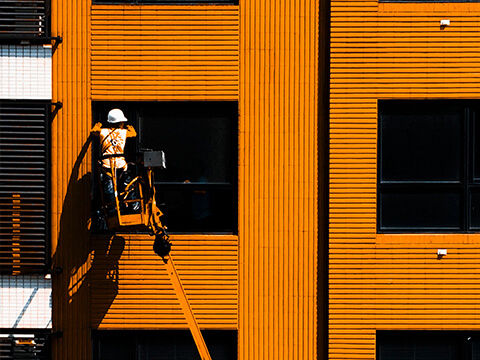 Diversification and the COVID-19 pandemic created an unprecedented challenge, which forced many commercial brokers to reinvent their approach and utilize new technologies to navigate these obstacles. Here is a Commercial Real Estate 2021 recap:
Diversification and the COVID-19 pandemic created an unprecedented challenge, which forced many commercial brokers to reinvent their approach and utilize new technologies to navigate these obstacles. Here is a Commercial Real Estate 2021 recap:
Remote Work
Although some experts may argue that working from home will have many implications on the real estate industry, it is now a scenario that most realtors have been forced to embrace. A recent study has shown that nearly 68% of realtors chose to work remotely, which forced brokers to offer more flexible and scalable solutions. Instead of viewing the idea of “remote work” as a negative, brokers should look at this as a way to reshape their ideas and update sales strategies going forward.
The Increase of Food and Beverage E-Commerce
There is no industry which has been more greatly impacted by the COVID-19 pandemic other than the restaurant industry. Due to the pandemic, the dine-in restaurant industry has lost more than $600 billion, which has therefore increased the food and beverage E-commerce industry. The industry has recently seen a 200% market growth. Due to social distancing rules and regulations, many people switched to grocery shopping online, which has forced grocers and commercial kitchen operators to increase the size of their facilities. Large commercial real estate properties that offer cold storage facilities became more desirable, which will be needed to accommodate the growing food and beverage e-commerce industry, once the supply crunch eases.
Minimized Demand for Multifamily Housing
As we conducted research for our commercial real estate 2021 recap, we saw a downturn in the multifamily market in terms of revenue in 2020, which affected each state. What lies ahead for commercial industry leaders remains unknown. Many experts predict little or no market growth in the foreseeable future. While recovering. many developers offered greater flexibility and price deductions. Even in top metropolitan areas, many sellers were either unwilling or unable to reduce pricing, which is why leasing became a more popular option. Multifamily development doesn’t occur overnight, which can be complicated for developers and can take many months to complete.
The COVID-19 resurgence in 2021 created an unpredictable scenario where surprisingly, new Multifamily developments did not see as much of a slowdown compared to other commercial real estate.
Due to social distancing preferences, majority of people strayed away from dense multifamily developments and began to reevaluate their living arrangements. On the other hand, many began to put their homes on the market to benefit from the housing market boom, and moved out of their large residential communities. Homeowners switched from owning to renting, which is a more predictable and affordable market that offers less upkeep and more bang for your buck.
Decline of Commercial Office Space
Over the past year, demand for commercial office space has dramatically changed, which is mainly due to the pandemic and social distancing regulations. The days of leasing a 20,000 sq ft commercial office space, which feature gyms, large conference rooms, and communal deli areas are practically a thing of the past now and are no longer considered a requirement. Nowadays, due to uncertain market shift, many businesses have decided to take the “virtual” route, which eliminates the need for physical office space and reduces overhead costs. The increase in virtual employees has decreased the demand for commercial office space by more than 25%. Nevertheless, commercial office space is still sought after, which includes the demand for smaller traditional office space.
Although the demand for large commercial office space has decreased, the need for home office space has drastically increased and due to the pandemic, this is a trend, which is unlikely to lose momentum. When purchasing a new home, many homeowners are now looking for homes that feature some extra space for an office. Apart from the COVID-19 pandemic and social distancing rules, many homeowners lost their jobs and experienced financial turmoil. Due to economic uncertainty, a vast majority of cities passed rent control laws and other regulations, which were designed to increase market stability and protect tenants.






